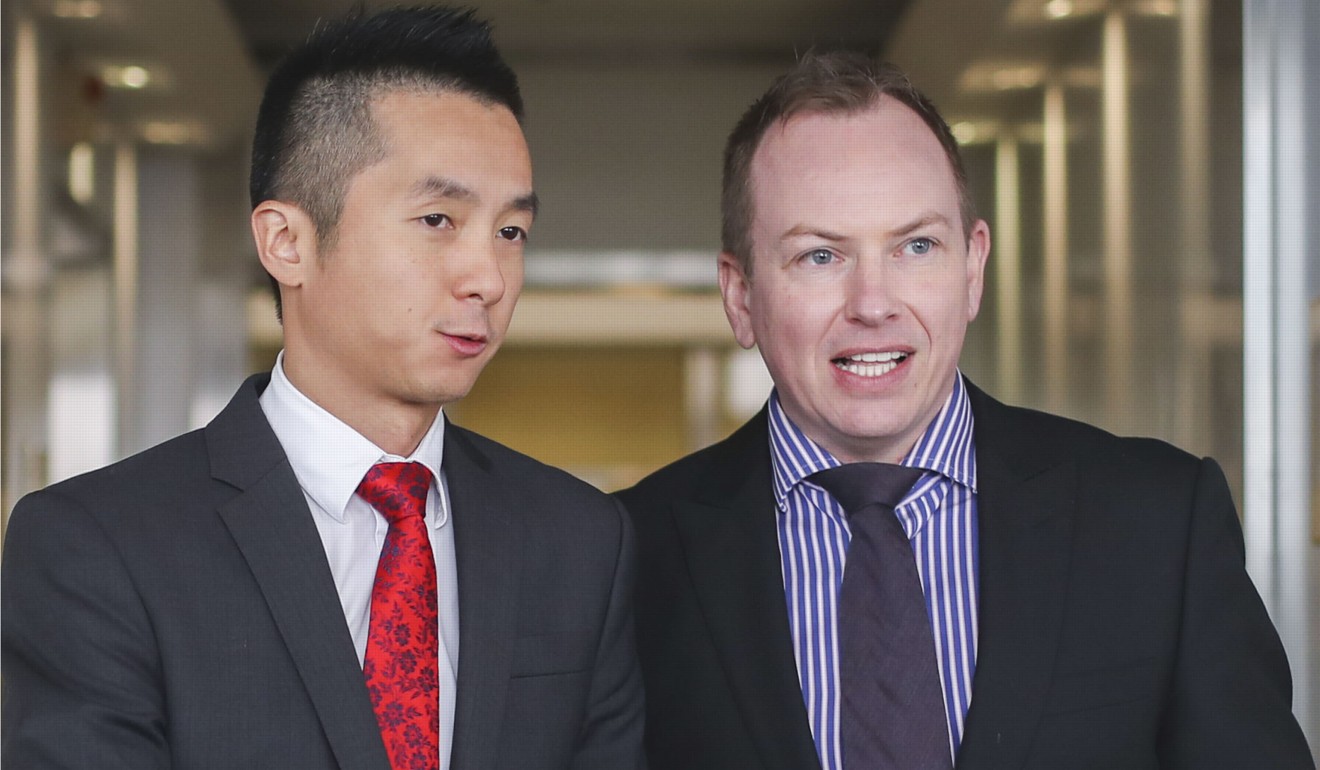
LGBT rights in Hong Kong should be protected, and the government should not seek to block progress
Cliff Buddle says the court ruling against spousal benefits for a gay couple is a setback for Hong Kong’s progress in protecting minority rights, and the government should be ashamed of its role in entrenching prejudice instead of fighting it
A judge granted Angus Leung Chun-kwong, an immigration officer, the right to claim employment benefits which the government reserves for heterosexual married couples. Leung married his partner in New Zealand in 2014. They couldn’t marry in Hong Kong because the city does not allow same-sex marriages.

The Court of Appeal overturned the earlier ruling on spousal benefits and upheld a decision by the same judge rejecting the couple’s claim for a joint tax assessment. The judgment is potentially more than just a setback for hopes of greater tolerance. It threatens to prevent further progress in this area for many years to come.
Protecting the rights of sexual minorities will boost Hong Kong’s reputation as an open and tolerant city which is moving with the times
The court expressed concerns that allowing employment and tax benefits reserved for married couples to be claimed by those who are not married would undermine the institution of marriage. If this right was granted, it said, others would be likely to follow, chipping away at the special status enjoyed by married couples.
Leung might argue that these concerns do not apply to him. After all, he is married. But what the court is seeking to protect is the institution of marriage as defined in Hong Kong. And that means heterosexual marriage.
The three judges found that Leung was possibly the victim of indirect discrimination. But such discrimination could be justified, they said, by the need to protect marriage as an institution.
Watch: Thousands march for equality in Hong Kong pride parade in 2016
These are the same three judges who ruled in favour of the lesbian seeking a dependency visa in September, a decision which appeared to be a big step forward. That ruling might now need to be seen in a different light, given the way the court applied it in the case of the civil servant.
The judges noted that the government had not put forward an argument in the visa case based on protecting the institution of marriage. The government is putting that argument forward now, as the case is being considered by the Court of Final Appeal. It will be interesting to see how the top court approaches it.
One troubling feature of the civil servant judgment is the importance attached by Mr Justice Jeremy Poon Shiu-chor to what he described as the “prevailing socio-moral values” in Hong Kong. By this, he means many people in Hong Kong do not support same-sex marriage. He referred to these values repeatedly in his judgment and even drew on opinion polls put forward by the government.
One poll, published in 2016, showed that slightly more than 42 per cent of respondents opposed same-sex marriage, with 29 per cent supporting it. Another, conducted in 2013, showed 42 per cent disagreed and 39 per cent were in favour. The judge used these surveys as evidence that public opinion on same-sex marriage is divided, “with the majority firmly against it”. The figures provided in the judgment certainly show division, with more against than in favour, but not a majority.
Watch: Showing support for gay rights with hugs on the streets of China
Watch: Taiwan becomes the first in Asia to legalise same-sex marriage
The rights of sexual minorities have reached a critical point in Hong Kong. The decision against Leung is likely to be taken to the top court. By then, the Court of Final Appeal will have ruled in the ongoing dependency visa case. Those decisions will give us a clearer picture of the legal position as it stands.
Protecting the rights of sexual minorities will boost Hong Kong’s reputation as an open and tolerant city which is moving with the times. It will help the city attract talent. Most important of all, it will allow members of the LGBT community to be treated as equals and live in dignity. The government should be driving progress rather than seeking to entrench prejudice.
Cliff Buddle is the Post’s editor of special projects

